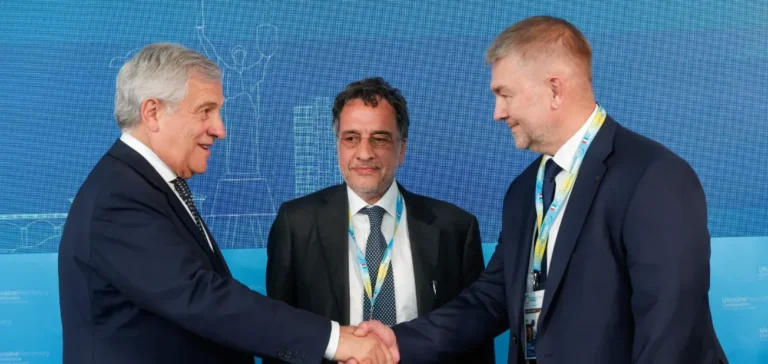The Italian electricity grid operator, Terna, led by Giuseppina Di Foggia, and the Ukrainian operator NPC Ukrenergo have signed a memorandum of understanding on the sidelines of the Ukraine Recovery Conference, held in Rome. The three-year agreement aims to intensify technical and regulatory cooperation between the two leading grid operators in Europe.
A partnership for transmission and energy security
According to the joint statement released after the signing, Terna and NPC Ukrenergo intend to organise training programmes and foster the development of joint projects in electricity system management. The protocol provides for the exchange of expertise in advanced technologies, dispatching control, and grid digitalisation, in addition to sharing experience in crisis management and the restarting of power systems under emergency conditions.
Both companies operate among the five largest electricity transmission networks in Europe in terms of total line length and installed transformer capacity. NPC Ukrenergo has shown particular interest in Terna’s experience with advanced technology implementation and network automation management, as well as resilience solutions for major incidents.
Strengthening European cooperation via ENTSO-E
Terna and NPC Ukrenergo are members of the European Network of Transmission System Operators for Electricity (ENTSO-E), an association created in 2009 to coordinate interconnection and security of European networks. The protocol signed falls within the joint activities carried out within ENTSO-E to harmonise rules and development plans for electrical infrastructure at the continental level.
The management of NPC Ukrenergo stated that this closer relationship with a major sector player like Terna represents a step toward greater energy security for Ukraine and its integration into the European electricity market.






















